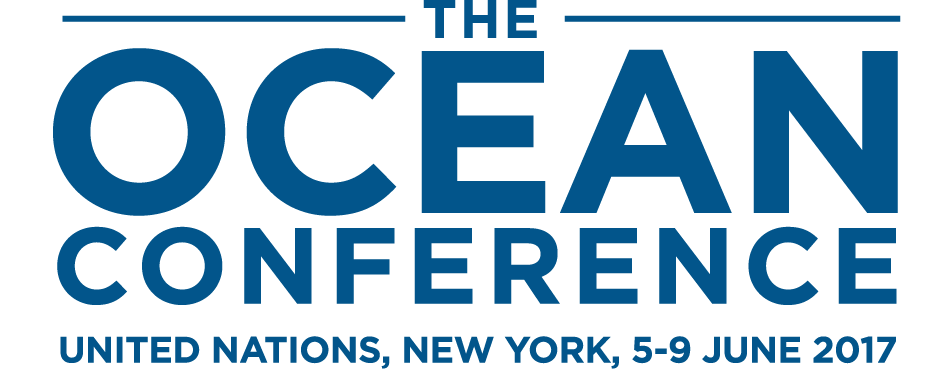Daily report for 27 September 2017
1st Meeting of the Conference of the Parties to the Minamata Convention on Mercury (COP1)
Delegates attending Minamata COP1 met in a brief session of the Committee of the Whole (COW) on Wednesday morning. Contact groups on reporting, the financial mechanism, programme of work and budget, and technical issues convened thereafter. Friends of the Chair on secretariat functions continued to convene in bilateral meetings throughout the day. During the COW session, delegates recognized Rwanda for becoming a decision-making party, having ratified the Convention in June.
Participants also engaged in a knowledge lab on collecting information for national action plans for artisanal and small-scale gold mining (ASGM). In the evening, the Global Environment Facility (GEF) premiered their movie “Make Mercury History.”
COW
In the morning, the COW met to hear progress reports from the contact groups. On reporting and effectiveness evaluation, David Kapindula, Zambia, reported that there was general agreement on a four-year reporting cycle for the full report and that information on mining, trade and waste would be reported every two years. On the effectiveness evaluation, he reported agreement on the establishment of an intersessional group.
On the financial mechanism, Gregor Filyk, Canada, reported that the contact group focused on the duration of the special international programme (SIP), hosting arrangements and governance structure. He said a small informal group was charged to bring together the ideas shared in the group and then present a proposal. He noted that a small group discussing the MoU with the GEF Council would also report back to the contact group, and reported the group’s understanding that any changes to the MoU would cause delays in adopting the terms of reference (ToR) because the new MoU would have to go back to the GEF Council for approval before it could be adopted by the COP.
On technical issues, Karissa Kovner, the US, reported that the group finalized a draft decision on contaminated sites that, inter alia, agrees to the development of a draft guidance. She reported the group also finalized a draft decision on interim storage that provides for a process to revise the documents. On waste thresholds, she said the group agreed to welcome the Basel Convention technical guidelines and encourage their use by parties and non-parties, and establish an intersessional working group with suitable geographic balance, and that a small group is developing a draft ToR for review by the contact group.
On regional centres, María Florencia Grimalt, Argentina, reported that informal consultations reached consensus on a decision that recognizes the work by the existing centres, and requests the secretariat to prepare the ToR for this work to continue. She invited parties that had not yet been able to participate to consult with her on the new draft.
On secretariat arrangements, COW Chair Lugris reported that “confessionals” are continuing, encourage all delegations to come forward with new ideas, and said that an open-ended Friends of the Chair meeting could convene if necessary.
CONTACT GROUPS
FINANCIAL RULES, PROGRAMME OF WORK AND BUDGET: This group met in the morning and during lunch. In the morning, delegates reviewed the costs associated with meetings for the 2018-2019 biennium. Participants sought clarification on the breakdown of the overall costs provided for future COPs, with some noting that some costs are location-specific while others, such as costs associated with documents, are not. Several developed countries drew comparisons with the costs of hosting the BRS COPs and requested a breakdown of costs, with comparisons between the estimates for Minamata COPs with BRS COPs.
On regional preparatory meetings for the COPs, several developed and developing countries affirmed the utility of these meetings, including as a means to increase the efficiency of the COPs by facilitating regional groups to develop shared positions. Responding to a request to compare their estimates to the costs of the BRS preparatory meetings, the interim Secretariat provided the comparison, and noted that the BRS budget supports two delegates per country per meeting, and that the Minamata process responds to parties’ requests regarding the duration of the regional meetings. One country suggested joint BRS/Minamata preparatory meetings when possible. Delegates then considered costs associated with intersessional meetings.
FINANCIAL MECHANISM: This group met and discussed a draft decision related to the SIP, working from a draft text revised by a small informal group based on the INC7 text. The contact group agreed that the programme be located under the secretariat of the Minamata Convention, and deleted text relating to an MoU with UN Environment on hosting arrangements. They then discussed the proposed title of the programme, which the small informal group had named “Specific International Programme Governing Body,” agreeing to name it the “special international programme (SIP) Governing Board.”
On the duration of the SIP Governing Board, many countries supported a 10-year period, while some developed and developing countries supported a possible five-year extension and two developing countries preferred a possible seven-year extension, noting the total time period for implementation including exemptions would be 17 years.
The group then discussed a new appendix containing the ToR for the SIP Governing Board. One developed country suggested three board members per UN region, while other countries supported two. The group agreed that the Board would be co-chaired by two members of the board.
They also discussed whether the SIP Governing Board, or another entity, would develop the Board’s rules of procedure, with one country noting that this is an issue dealt with within the normal UN process. Countries agreed that the SIP Governing Board will provide parties with application guidelines for projects under the SIP, and on the process for reporting on SIP Governing Board activities. Views diverged on whether the costs associated with administrative support would be funded by the general or special trust fund.
One country asked to bracket text that non-parties are not eligible to apply for funding, which many countries opposed, observing that the paragraph was agreed in the INC7 text. The contact group continued to meet into night.
REPORTING: The group met in two sessions during the day, first discussing the effectiveness evaluation. The group decided to postpone consideration of one country’s suggestion of having two, rather than one, ad hoc expert group in the intersessional period between COP1 and 2. With a general agreement for experts to meet during the intersessional period, participants deliberated over the mandate of this group. Highlighting the need to work on both monitoring data and an effectiveness evaluation framework, one regional group suggested that the mandate be to “develop a framework for the effectiveness evaluation, including performance indicators and ToR for the first effectiveness evaluation, taking into account the experience of other multilateral environmental agreements (MEAs).” Several countries opposed, underscoring that, for practical reasons, priority should be given to understanding data availability and comparability, with the framework being agreed at a later stage. Not able to reach consensus, the group agreed to postpone this discussion.
The contact group considered the suggested tasks for the expert group, agreeing that it should develop an outline of types of globally comparable data. They also discussed the group’s task of developing a draft plan to integrate comparable results for future monitoring that countries and stakeholders may choose to undertake. Citing language from article 22 (effectiveness evaluation shall be based on available data), one country questioned whether the draft plan needs to identify opportunities for future enhancements to monitoring by parties, urging countries to focus on the data that is available for the effectiveness evaluation, rather than use resources from the implementation of the Convention. Several countries opposed, noting the need to set up a dynamic process. Co-Chairs proposed, and participants agreed, to have an informal small group discussion in the afternoon and then reconvene the group in the evening.
TECHNICAL ISSUES: This group met informally for most of the day, working on the ToR for a small intersessional working group on waste thresholds. In the evening, the contact group met briefly to discuss a draft decision on mercury waste.
IN THE CORRIDORS
Day four saw delegates in a scramble to the finish - when not in contact groups, bilaterals, and informal discussions, they were in huddles trying to hash out outstanding issues. The news of the quick progress on technical issues was welcomed by many, with one delegate saying, “I hope this spurs progress elsewhere.”
Perhaps overhearing this, the group working on the effectiveness evaluation managed to “isolate the problems,” and began actively seeking ways to address them in an even more informal setting, with many participants remaining optimistic that discussions would be “over by midnight.” Even more positive work was observed in the group discussing the financial mechanism, with one small group representing divergent interests worked late into Tuesday night to come up with text which was “largely agreed” by the contact group. “The end may be in sight,” sighed one exhausted participant. “But we haven’t considered the MoU with the GEF,” his friend reminded him.
Delegates also opened discussions on the budget, initially making slow progress. One participant explained that many decisions related to the budget and programme of work are dependent on the agreement made on the functions of the permanent secretariat. “In one sense, the two issues are pretty much one,” opined one delegate.
In another room, one delegate joked that sitting up front was like sitting in the front-row in a movie theatre: you can barely see anything or focus on the details. While specific words belie considerable importance, others looked ahead, to the value of the high-level segment which begins on Thursday. Some hoped that it will inject the political will needed to clear the bigger hurdles that still remain and, as one hoped, “will bring people back to the big picture.”
-->
Specific funding for coverage of the Ocean Conference - June 2017, has been provided by the
XXX, XXX, and XXX
-->
IISD Reporting Services is a division of the International Institute for Sustainable Development (IISD).
Earth Negotiations Bulletin (ENB), ENB+, and Knowledge Management for Sustainable Development
are branches within IISD Reporting Services.
© 1992-2017, IISD Reporting Services. All rights reserved.







